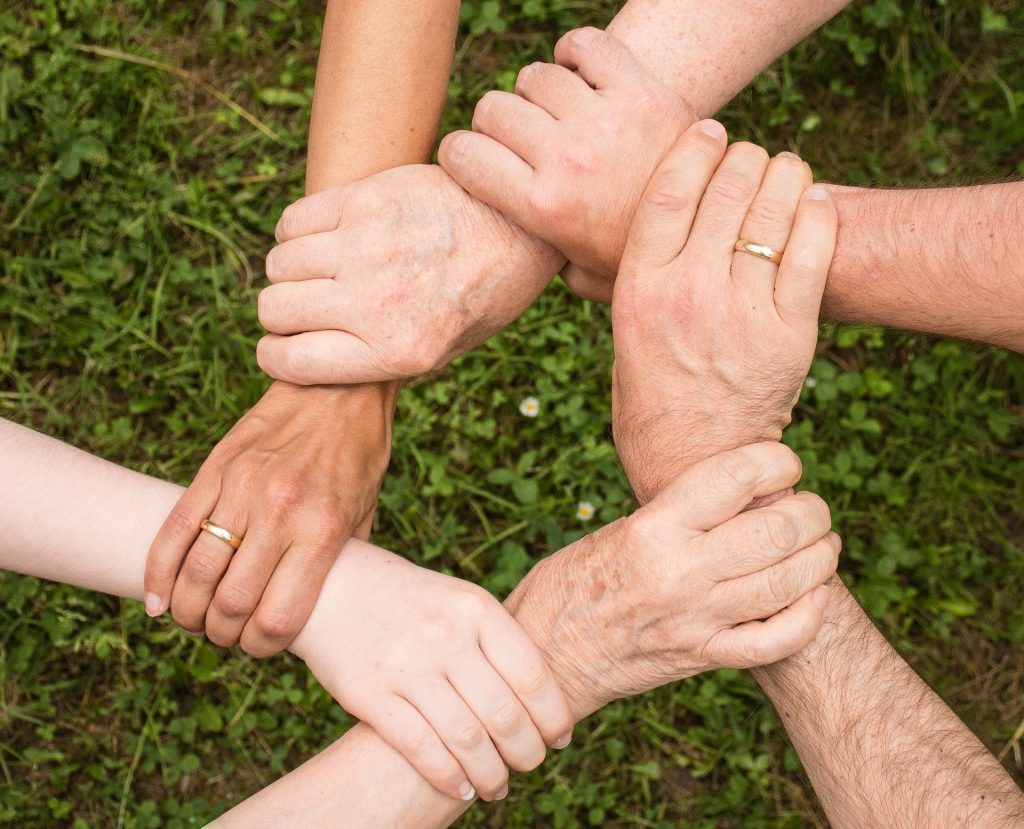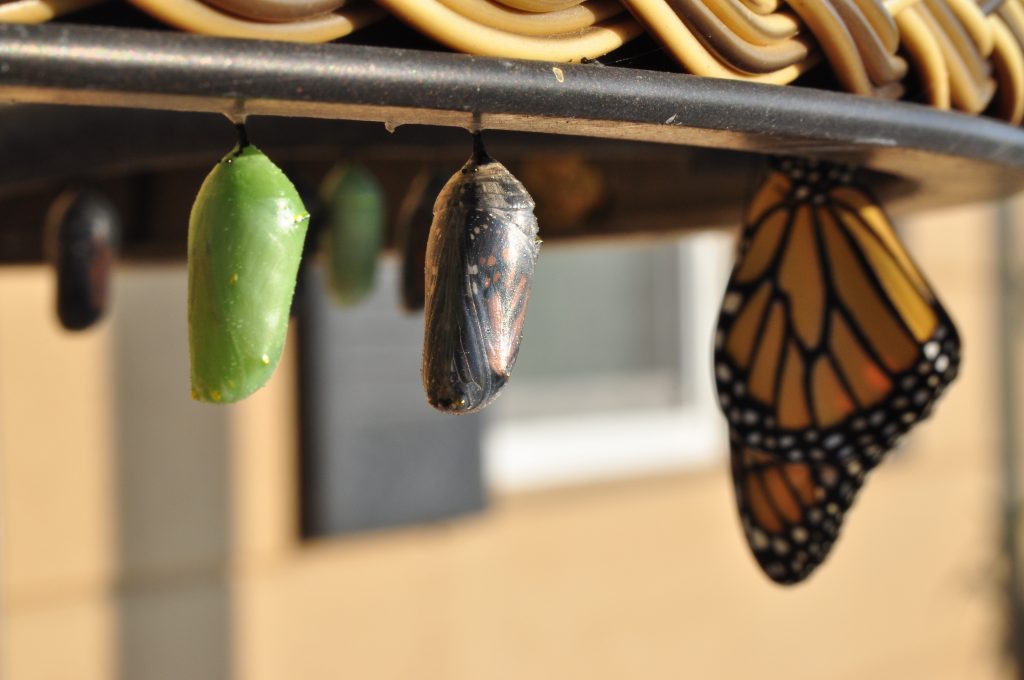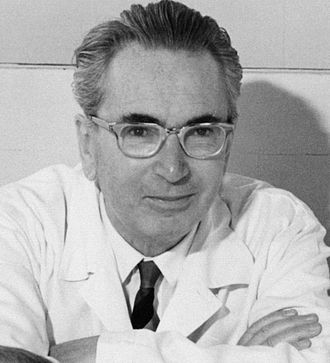It Helps a Lot When We Decide to NOT do it Alone
There is a lot of suffering out there, whether it’s illness, abusive relationships, someone taking advantage of someone else, or death. As hard as it is, these things are all a part of life.

It’s easy to get caught up in the struggle and pain of these situations. We wonder, why do these things happen. This is a question that we won’t be able to fully answer this side of eternity.
Even though there’s suffering, there are miracles happening around us every day.
It’s up to us to choose which we spend our energy focusing on.
A good example of this is the story of critical care surgeon Dr. Kathryn Butler.
She felt distant from God until she witnessed a medical miracle.
As she worked in the emergency room, she was treating a 22 year old man who had been bludgeoned with a baseball bat in his sleep. His wife, lying beside him, died during the assault and his four-year-old son witnessed everything.
Dr. Butler thrived on the urgency of the emergency room—the chaos, the opportunities to reach people in dire moments. Yet on this particular night she struggled to focus. She kept thinking of his four-year-old son in footed pajamas, and the images of brutality he might never forget.
While wrestling with these thoughts, paramedics rushed in with a 15-year-old boy dying from a gunshot wound. The bullet had torn open his aorta. He could not be saved.
While fighting back tears, her trauma pager went off again. Another 15-year-old boy. Another gunshot wound. This time, the bullet had struck the boy’s head.
The next morning, as she finished her shift, she wandered about as if lost. She despaired over how little life mattered to people. Each of her patients had suffered at the hand of someone who looked at him and saw no worth.
How could God allow such evil?
She had grown up as a nominal Christian. Her family observed certain Christian traditions, but never read the Bible or talked about the gospel together. She understood Christianity to be synonymous with good behavior.
After work, she drove for hours parking at a bridge that spanned the Connecticut River. She gripped the guardrail, tipping her face against the wind, breathed, and felt . . . nothing. She opened her mouth to pray, but no words came.

Doubt led to hopelessness, and hopelessness to despair. She dreamed of eternal sleep, of numbness, of annihilation. Thoughts of taking her own life troubled her daily. She fought the impulse to return to the bridge over the Connecticut River and jump over the railing. Only the love for her husband, Scottie, brought her home each evening.
Months later, Scottie lost his job. While she struggled with the problem of evil, he sought the church, understood the Word for the first time, and accepted Christ as his Savior. Scottie invited her to join him in worship, but she remained disillusioned. When she finally attended church to appease him, everything seemed awkward and foreign.
Later she transitioned to work in the ICU. Among her patients there was a middle-aged man who suffered cardiac arrest after a hip replacement. A lack of oxygen during the arrest had caused severe brain injury and neurologists predicted he would never recover.
The man’s wife and daughters would be at his bedside daily praying for a miracle.
One morning, the man’s wife was at his bedside, singing. As Dr. Butler approached his wife said, “I was praying and praying last night, and when I woke up, I knew everything would be fine. God told me he’s going to be just fine.”

Dr. Butler admired her conviction and her hope, especially since Dr. Butler had neither.
Yet her husband’s clinical data promised that everything would not be fine.
Over the next few weeks his wife continued to sing and pray. The medical staff struggled to conceal their worry. They would shake their heads and cast each other glances that said, “This is heartbreaking.”
One afternoon, he moved his toe. The doctor said, “I’m sorry, but it was probably just a reflex.
“No,” his wife insisted. “Watch.” She put a hand on his shoulder and shouted into his ear for him to wiggle his right big toe. He did.
The next day, he turned his head toward them. Then, he blinked on command. In two weeks, he was awake. In three, he sat in a chair.
At best, the neurologists had anticipated he might occasionally track moving objects. No one expected that his condition would so dramatically resolve.
Medical science could not explain his recovery.
Dr. Butler suspected she had witnessed a miracle. Yet, still wrestled with God. How could He bestow such blessings, yet allow suffering?
Dr. Butler’s husband continued to encourage her to read the Bible. So, she started with the Gospels, then Romans. As she read with a newly opened heart there was unveiled Christ’s love that she had never fathomed.

The agony He suffered for our sake. He had endured heartache and had confronted the face of evil. And He bore such affliction—our affliction—for us. Romans 5:1–8 revealed the awesome magnitude of God’s love for us.
He knows suffering.
The Lord took away Dr. Butler’s despair and fashioned a canvas for His perfect work in her. Just as Christ raised Lazarus so that others might believe, so he redeems suffering—the gunshot wounds, the mourning, the lost jobs, the despondency beside bridge railings—for his glory.
In his mercy, he descends to buoy us up, and to complete miracles we cannot comprehend. He pours blessings upon us every day, but also the hard nights, and every breath in between.
What’s important to remember is that we don’t have to go through these difficulties alone. There is God, family and friends to help us through.
It’s up to us to believe.










